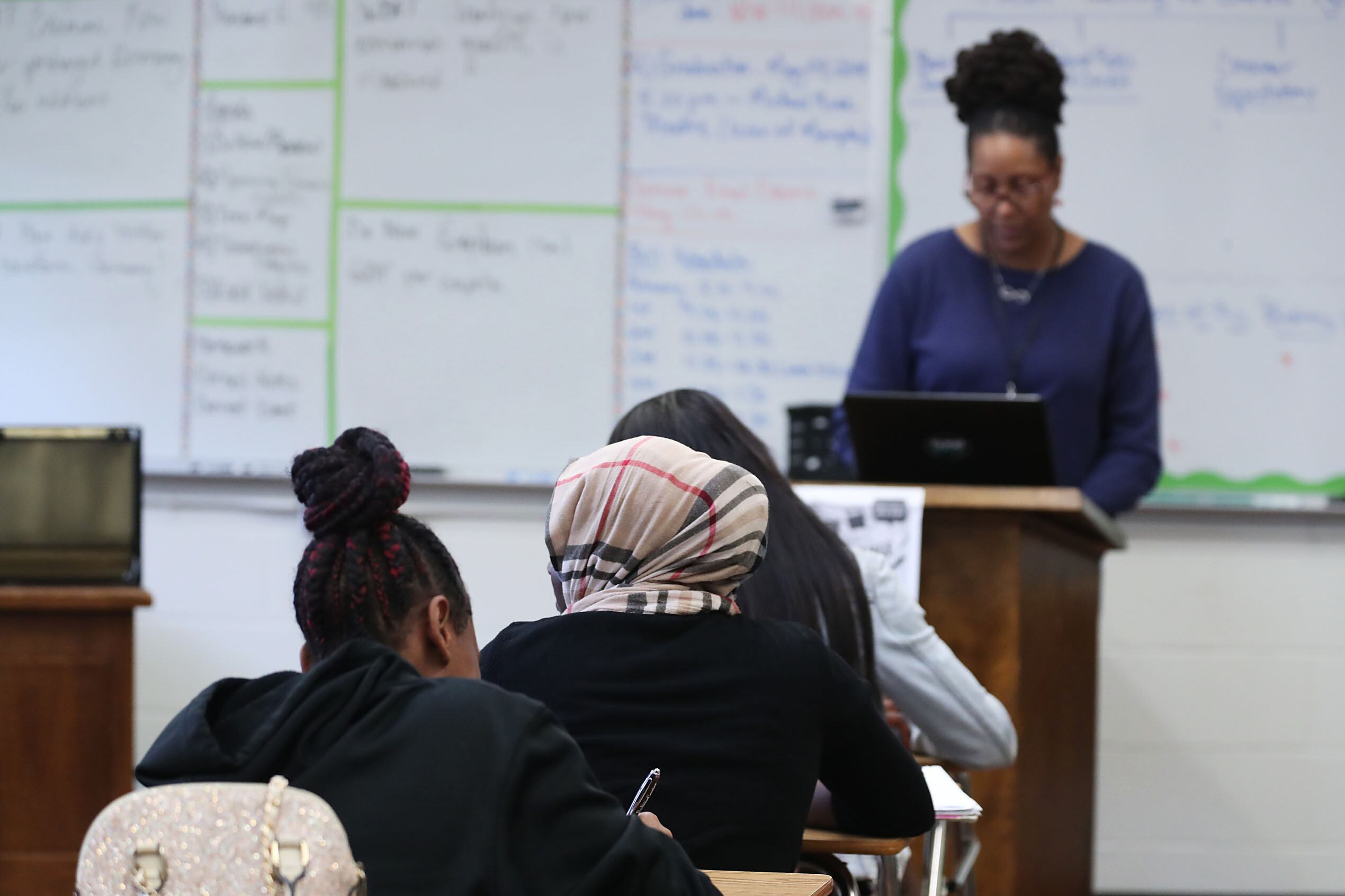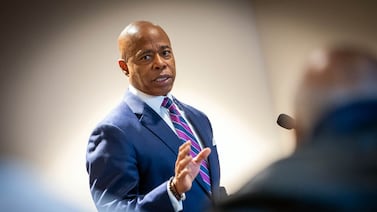The number of new educators graduating from teacher training programs across Tennessee has dropped by nearly one-fifth over five years, with most of the decline happening before the pandemic, according to a new report.
The latest report card on Tennessee’s 43 teacher training programs shows just more than 3,000 would-be educators graduated in the 2019-2020 school year, compared with about 3,700 in 2014-2015.
The troubling trend, which mirrors national declines, comes as many districts struggle to fill vacant teacher jobs and keep classrooms staffed because of teacher absences caused by COVID. The state also anticipates a major teacher exodus during the next decade due to attrition and a wave of retirements.
Teacher supply was on the minds of state lawmakers Tuesday who were considering ideas to address the shortage.
Assistant Education Commissioner Charlie Bufalino told a House education panel the state has about 2,200 teacher vacancies, although other estimates put the count significantly higher. Officials with the education department told Chalkbeat they can’t provide details until after this week, which is the deadline for districts to submit teacher vacancy information.
Tennessee’s largest district reported having 200-plus teaching positions open in Memphis in the fall. And in Nashville, the state’s second largest district currently has more than 80 full-time teacher vacancies.
The leader of the Professional Educators of Tennessee called the shortage a “full-blown crisis.”
“We’re driving people out of the profession faster than we can replace them,” said Executive Director JC Bowman.
About 22% of Tennessee educators responding to a recent survey by his group said they plan to leave education.
Modest pay, a punitive culture of student testing and teacher evaluations, student discipline challenges, and a shortage of planning time are among the reasons, Bowman said.
“It’s clear there’s a morale crisis,” he said. “Teachers are doing their best, but they don’t feel supported. These are highly educated people who are increasingly walking away to do other things that also pay them more money.”
“Teachers are drowning,” said Joey Vaughn, director of schools in Manchester, during testimony last month before state lawmakers about the pandemic’s impact. “We have to be very cognizant not only of our student needs but of the needs of people working with our kids.”
With teacher prep programs producing fewer potential hires, Tennessee is looking to several new initiatives to help replenish the ranks.
The state has cleared the way for school systems to develop “grow your own” training programs similar to one pioneered by Clarksville-Montgomery County Schools and Austin Peay State University. While the programs vary by district, they generally hire prospective teachers who can work in a school in a support role and get paid while pursuing their education and credentials through a teacher training program.
And last month, Tennessee leaders announced a partnership with the U.S. departments of education and labor to establish teacher apprenticeship programs across the state.
U.S. Secretary of Education Miguel Cardona has called Tennessee’s efforts “a model for states across the country.” On Friday, he’s scheduled to host a roundtable discussion in Nashville to discuss ways to strengthen and diversify the teacher pipeline.
The State Board of Education also has eased requirements for out-of-state teachers to obtain licenses in Tennessee. And it’s added pathways to fast-track credentials for teachers to shift to special education and English as a second language, both high-demand areas.
Regarding compensation, Gov. Bill Lee has proposed investing an additional $125 million next year in the fund that allows for pay raises for teachers and other school workers.
“Everything we can do to take a bite of the apple, we’re doing,” said Brian Blackley, a spokesman for the education department.
Some good news was highlighted by the State Board of Education in its annual report card.
Executive Director Sara Morrison credited teacher training programs — from colleges of education to nontraditional programs like Memphis Teacher Residency and Teach for America — for recruiting more diverse cohorts and encouraging students to pursue licenses in high-demand subjects.
Since 2016, training programs have increased by 6 percentage points the number of candidates earning credentials to teach in special education, English as a second language, and high school math and science.
There also was an uptick in the number of newly trained teachers from racially and ethnically diverse backgrounds.
“These positive trends reflect the intentional work of Tennessee’s (educator training programs),” Morrison said.
Marta W. Aldrich is a senior correspondent and covers the statehouse for Chalkbeat Tennessee. Contact her at maldrich@chalkbeat.org.








